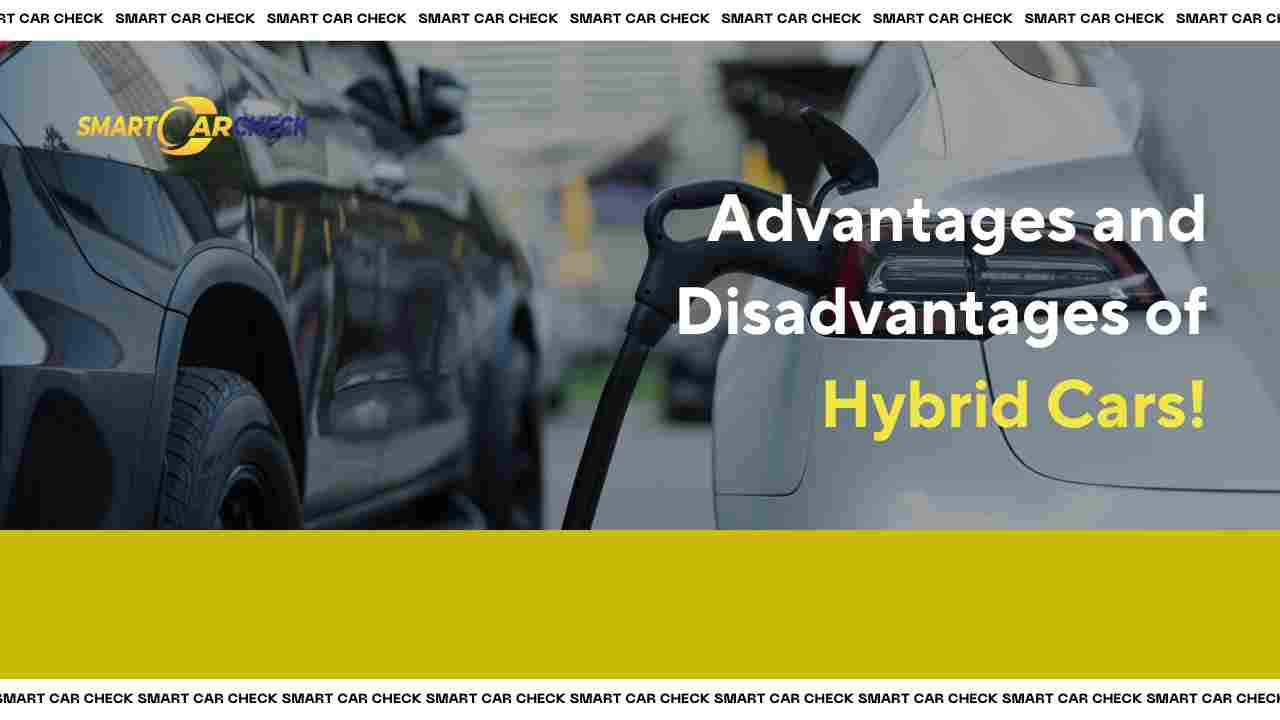Hybrid cars emit around 17-30% less carbon than regular cars. As they continue to grow in popularity in the UK, more buyers are considering them as an alternative to traditional petrol and diesel cars. Hybrids offer a unique balance between fuel efficiency and lower emissions, making them a desirable option for environmentally conscious consumers.
However, understanding the advantages and disadvantages of hybrid cars is essential for potential buyers who want to make an informed choice. This article offers a comprehensive look at the pros and cons of hybrid cars, equipping UK car buyers with the insights they need to determine if a hybrid is right for them.
With our vehicle registration check UK tool, prospective buyers can even investigate the history and condition of a used hybrid car before making a purchase.
RELATED: Top Chinese Electric Cars in The UK | EV Cars from China
Why Hybrid Cars Are Becoming Popular
More than 2% of cars in the UK are hybrid or electric. Hybrid cars, which combine an internal combustion engine with an electric motor, offer a middle ground between fully electric and conventional petrol-powered cars.
They are popular for their ability to reduce fuel consumption, lower emissions, and provide a smoother driving experience. In a world increasingly focused on sustainability and fuel efficiency, hybrid vehicles align with the goals of many UK drivers who want to minimise their environmental impact while saving on fuel costs. As government incentives and environmental policies evolve, hybrids represent an accessible step toward greener transportation, even for drivers who may not be ready to go fully electric.
Advantages of Hybrid Cars
Hybrid cars combine fuel efficiency, environmental benefits, and financial incentives, offering drivers a cleaner, cost-effective alternative to traditional vehicles. They provide a smooth, quieter ride while contributing to reduced emissions.
Fuel Efficiency
One of the most significant benefits of hybrid cars is their fuel efficiency. By using an electric motor in conjunction with a traditional engine, hybrids consume less petrol, especially in city driving conditions.
The electric motor helps reduce fuel usage in situations where the engine would typically consume more, such as idling or driving at low speeds. This translates into lower fuel costs over time, making hybrids attractive to those looking to save on their fuel budget.
Environmental Benefits
Hybrids emit fewer greenhouse gases than traditional petrol or diesel vehicles. This reduction in emissions helps lower pollution levels, making hybrids an environmentally friendly choice.
Drivers looking to decrease their carbon footprint find hybrids appealing, as these vehicles help them contribute to cleaner air and overall environmental sustainability.
In urban areas where air quality is a concern, hybrid vehicles offer an alternative that balances personal convenience with social responsibility.
Tax Incentives and Exemptions
Hybrid car owners in the UK can benefit from several tax incentives and exemptions. For instance, hybrids often qualify for lower road tax due to their reduced emissions, and some models may even be eligible for government subsidies.
These financial incentives make hybrid ownership more appealing, offsetting the higher purchase price of the vehicle. Additionally, hybrid cars may have exemptions or discounts for congestion charges in some cities, further reducing the long-term costs of owning a hybrid.
Smooth Driving Experience
Hybrid cars provide a smooth and quiet driving experience, thanks to their electric motors. The transition between the electric motor and the petrol engine is generally seamless, giving drivers a refined ride.
Hybrids also come equipped with regenerative braking technology, which captures energy from braking and uses it to recharge the battery. This technology not only helps extend the range of the electric motor but also contributes to a more effortless, enjoyable driving experience, especially in stop-and-go traffic.
Disadvantages of Hybrid Cars
While hybrid cars offer eco-friendly benefits, they come with drawbacks like higher upfront costs, potential maintenance complexities, and limited electric range, making them less ideal for some drivers’ needs and budgets.
Higher Initial Cost
One of the main downsides of hybrid cars is their higher initial cost compared to conventional petrol or diesel vehicles. Advanced technology that powers hybrids, such as battery systems and electric motors, makes them more expensive to manufacture.
This often results in a higher price tag for consumers, which can be a barrier for budget-conscious buyers. However, tax incentives and fuel savings can help offset some of these costs over time.
Maintenance Complexity
While hybrids generally require less frequent maintenance than traditional vehicles due to reduced engine wear, they also have unique maintenance needs. Hybrid systems may require specialised servicing, particularly when it comes to the electric motor and battery components.
For instance, finding a qualified mechanic familiar with hybrid technology might be more challenging, and repairs for these specialised systems can be more costly. This factor is essential for buyers who want a straightforward, low-maintenance car.
Range Limitations
Hybrids, particularly plug-in hybrids (PHEVs), may face range limitations in electric-only mode. While PHEVs can be driven using only the electric motor for short distances, their range typically does not compare to that of fully electric vehicles.
In situations where charging stations are unavailable, drivers may find themselves relying more on the petrol engine, which can diminish some of the environmental and fuel-saving benefits.
Drivers who frequently embark on long journeys or lack easy access to charging facilities might find a traditional hybrid or fully electric vehicle more suitable for their needs.
Battery Life Concerns
Like all battery-powered vehicles, hybrids face the challenge of battery degradation over time. Although hybrid batteries are designed to last for many years, they will eventually require replacement.
The cost of replacing a hybrid battery can be significant, especially if it occurs outside of warranty coverage. Buyers should consider this potential long-term expense, as it could impact the overall cost-effectiveness of a hybrid.
RELATED: How Much Does It Cost To Charge An Electric Car? | Here’s How It’s Calculated
Tips for Choosing the Right Hybrid Car
When choosing a hybrid car, it’s vital to assess your driving habits and budget. A plug-in hybrid may offer the most benefits for drivers who mainly commute within cities due to its electric-only range.
However, a traditional hybrid with a larger petrol engine might be a better fit for longer-distance driving.
Also, consider the availability of charging stations nearby, as easy access to charging can enhance the benefits of a hybrid vehicle. Setting a budget is essential, too, as it helps narrow down options and ensures you’re prepared for potential maintenance or battery replacement costs.
But, before finalizing your decision, use our VIN check tool to uncover the vehicle’s history. It provides valuable insights into past ownership, accident records, and maintenance history, ensuring the hybrid you choose is reliable and matches your expectations.
How Smart Car Check Can Help Evaluate Hybrid Cars
Purchasing a hybrid car is an investment, so knowing a vehicle’s history is crucial. Smart Car Check offers comprehensive vehicle reports, including information on previous keepers, service records, and potential issues.
By reviewing a hybrid’s history report, buyers can gain insights into how well the vehicle has been maintained and whether it has had any mechanical problems. This helps buyers make informed decisions and feel confident in their purchase, knowing they’ve chosen a reliable and suited hybrid.
RELATED: MOT Check | Check the MOT History of Any Vehicle
Conclusion
Hybrid cars offer a range of advantages, from fuel efficiency to environmental benefits and tax incentives, making them an attractive choice for many UK drivers. However, potential buyers should also consider the disadvantages, such as higher upfront costs, maintenance complexity, and range limitations.
By carefully assessing their driving needs and budget, UK car buyers can make a well-rounded decision. Hybrid vehicles may not be for everyone, but they present a compelling option for those seeking a balance between sustainability and fuel efficiency.
Frequently Asked Questions
Are hybrid cars more expensive to maintain?
Hybrid cars can have unique maintenance needs that require specialised knowledge, leading to higher service costs. However, hybrids generally experience less engine wear, which can reduce certain maintenance needs.
How long does a hybrid battery last?
Hybrid batteries are designed to last for many years, often around 8-10 years, but this varies depending on the vehicle and driving conditions.
What are the main benefits of hybrid cars?
Hybrid cars offer benefits like reduced fuel consumption, lower emissions, tax incentives, and a smoother, quieter driving experience, making them a good choice for eco-conscious drivers.



